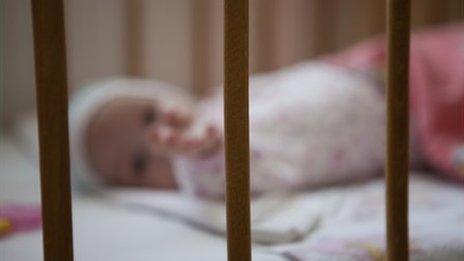Moldova election: Pro-EU parties edge pro-Russian rivals
- Published
Ben Bland reports on results from Moldova's parliamentary elections
Latest results from Moldova's parliamentary elections show that pro-EU parties have a narrow lead over those backing closer ties with Russia.
With most of the votes counted, the three pro-Western parties have about 44%. The opposition has 39%.
No party appears to be able to form a government, and tough post-election bargaining is predicted.
The elections have taken on a wider significance in the shadow of the conflict in neighbouring Ukraine.
Moldova and Ukraine have signed far-reaching partnership agreements with the EU, bitterly opposed by Russia.
On the eve of the vote, one pro-Russian party was banned from Sunday's poll - a move criticised by Russia.
Residents of the Russian-backed breakaway region of Trans-Dniester did not take part in the election.

Analysis by Nick Thorpe, BBC Central Europe correspondent
The three pro-EU parties will have a big enough majority to form a government. But those aspirations have been dented by the strong showing of the Socialist Party, which wants Moldova to join Russian President Vladimir Putin's planned Eurasian Union instead.
As the largest single party in the new parliament, Socialist leader Igor Dodon promised that his party in opposition would make the "European integrationists shake with fear".
Tough bargaining lies ahead. One reason for the fall in support for the pro-European parties - from 52% at the 2010 elections, to 44.6% per cent now - was their history of infighting. Another reason was their perceived corruption.
The election also showed a change in popularity for the three main pro-Russian parties. The younger and more outspoken Socialists overtook the Communists.

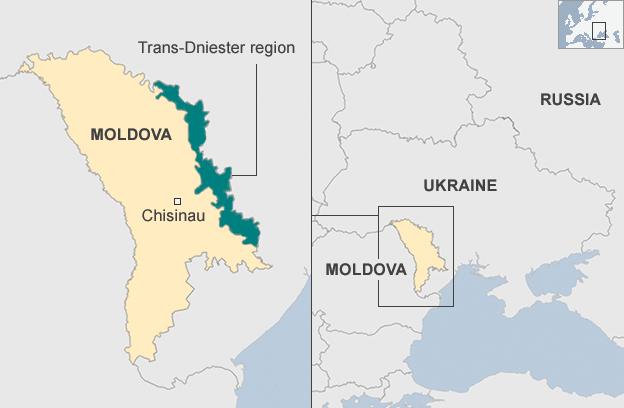
According to latest results, the three pro-European parties are set to have 57-58 seats in Moldova's 101-seat parliament, while the two pro-Russian opposition parties are expected to hold 43-44 seats, reports say.
The pro-Russian Socialist Party came first with 21% of the vote. The Communist Party was in third with almost 18%. The party is a Soviet-era survivor that still uses the hammer and sickle as its symbol, although it is not seen as fundamentally opposed to EU integration.
The pro-EU Liberal Democrats were in second place with 19%. The party wants Moldova to achieve EU candidate status by 2017 and full membership by 2020. Two other pro-Europe parties - the Democrats and the Liberals - were on 16% and 9% respectively.
There have been reports that the pro-EU parties may now try to form a "grand coalition" with the communists to keep the country on the European track.
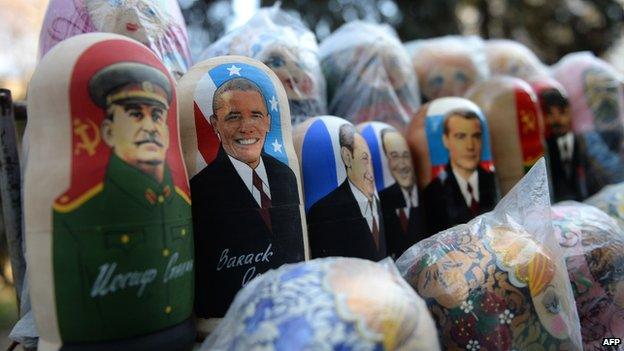
Between East and West - Russian dolls can be bought in Chisinau markets
Ukraine has been in crisis since last November, when the former leadership made a last-minute U-turn, refusing to sign a landmark association and free trade deal with the EU - under huge pressure from Russia.
This triggered mass protests in Ukraine that ousted President Viktor Yanukovych, and Kiev later signed the EU deal. But the protests, in turn, led to Russia annexing southern Crimea peninsula in March and throwing support behind separatist rebels in eastern Ukraine.
Ahead of the Moldova vote, analysts said poll ratings of the Socialists, who want Moldova to turn its back on the EU and join a Russia-dominated economic bloc, had been boosted by their populist campaigning, including concerts by Russian pop stars.
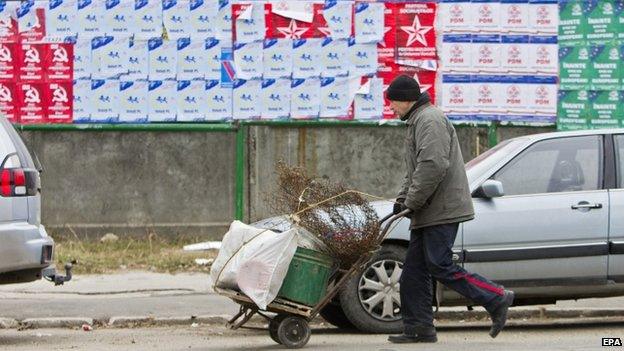
Moldova remains one of the poorest countries in Europe
The pro-Moscow parties had been expected to pick up additional votes after the decision to ban the pro-Russian Fatherland party, on the grounds that it had illegally received foreign funding.
Fatherland, whose leader fled to Russia, denies the claim.
Turnout was just under 56%, the central electoral commission said, out of a total of 2.7 million eligible voters.
Parties need to get at least 6% of the vote to gain seats in parliament.
The opposition was also hoping to capitalise on the growing economic problems under the pro-Western government in Moldova - one of Europe's poorest countries.
The situation worsened after a Russian ban on imports of Moldovan agricultural products - including wine, meat, fruit and vegetables.
- Published29 November 2014
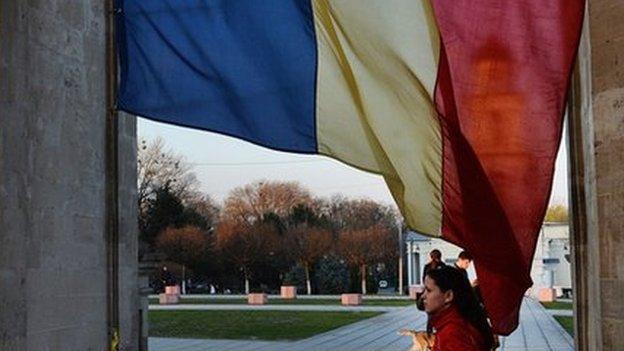
- Published21 November 2013
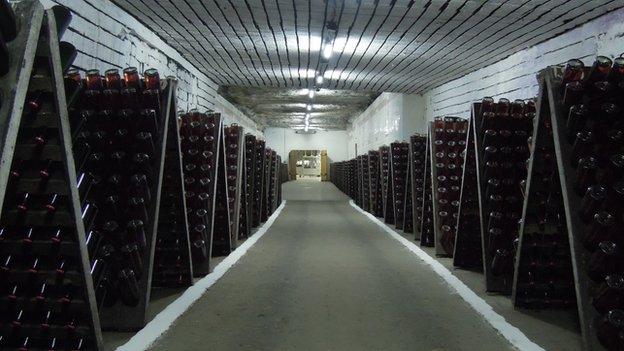
- Published10 October 2014
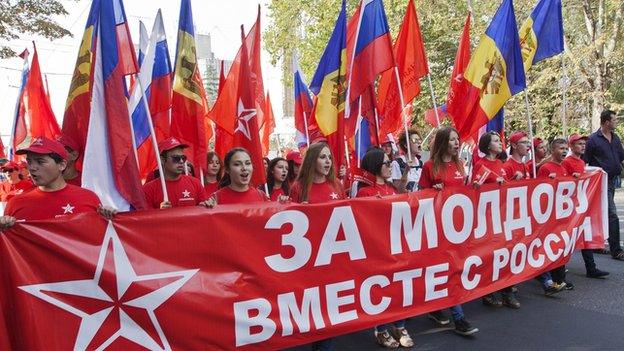
- Published4 November 2024
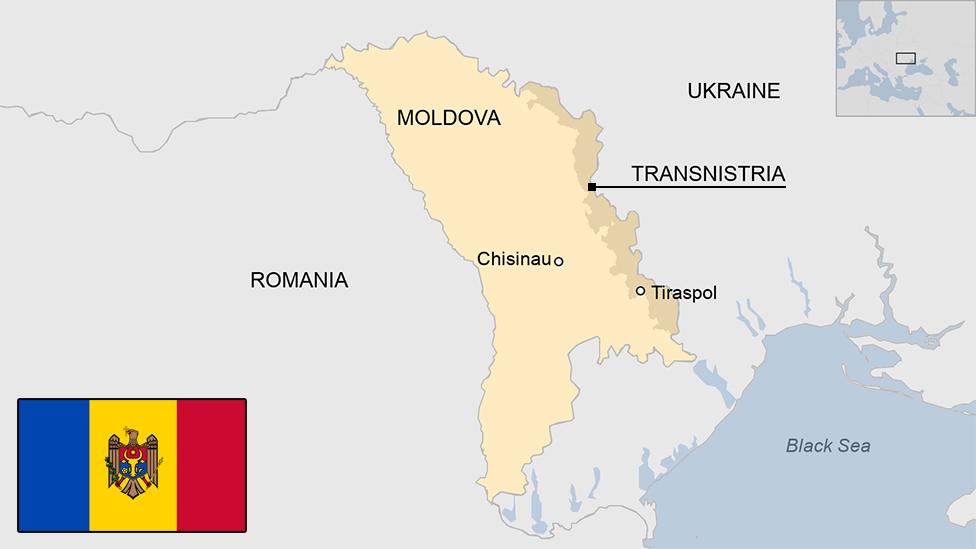
- Published17 September 2014
